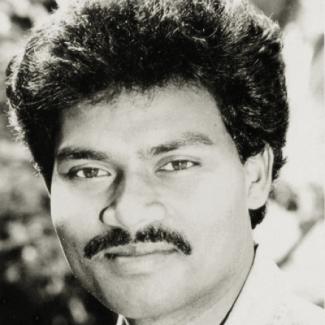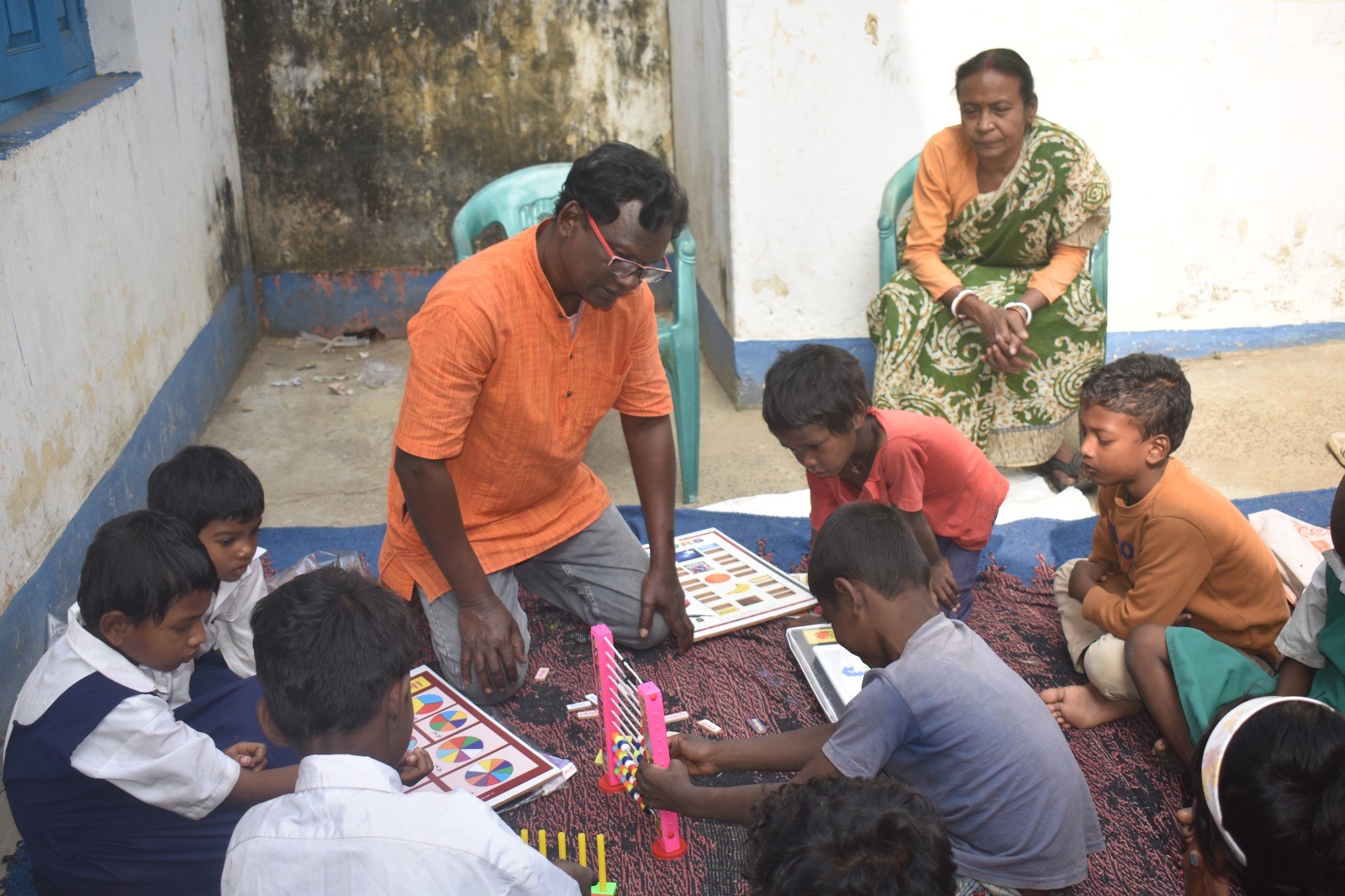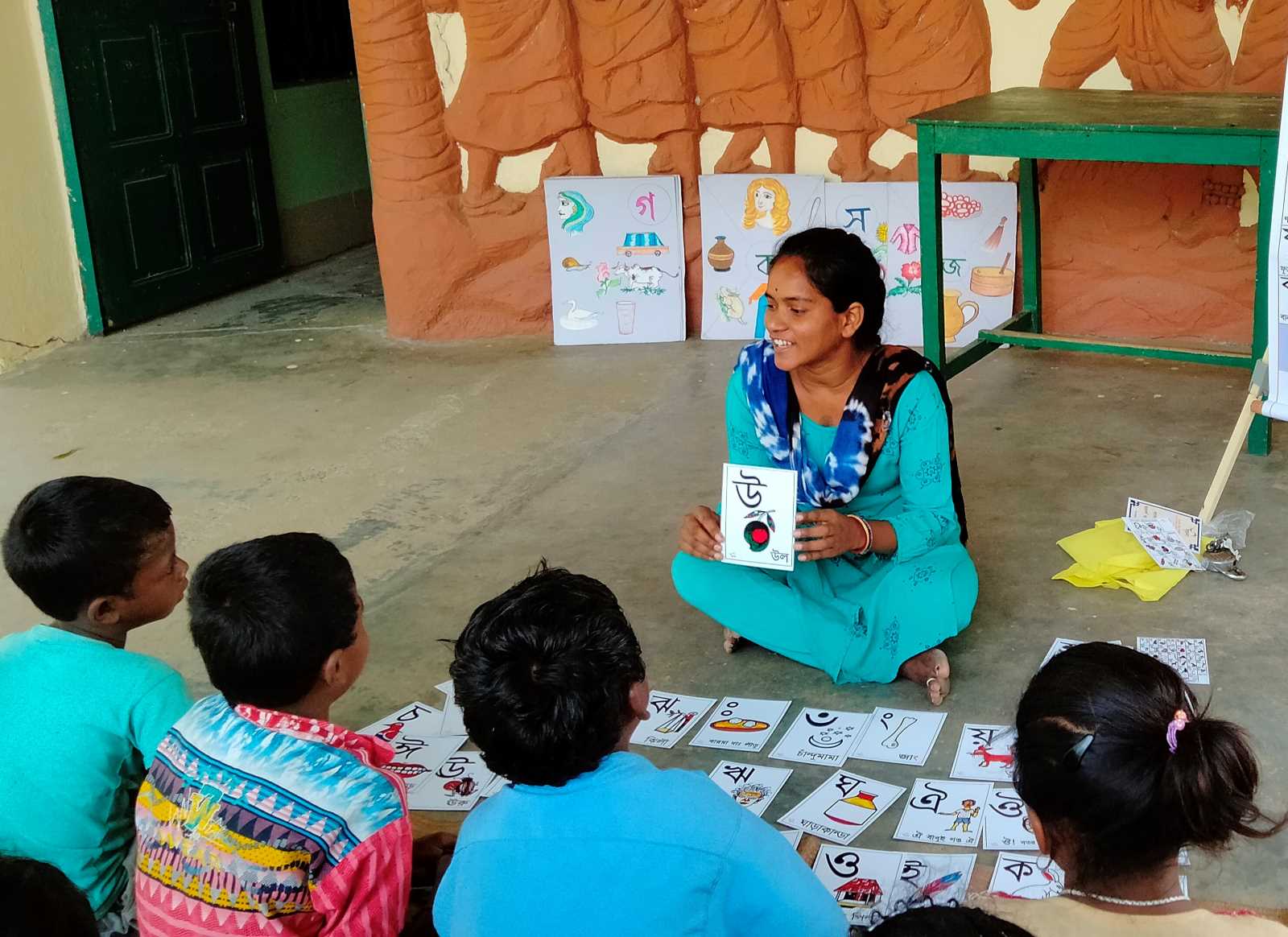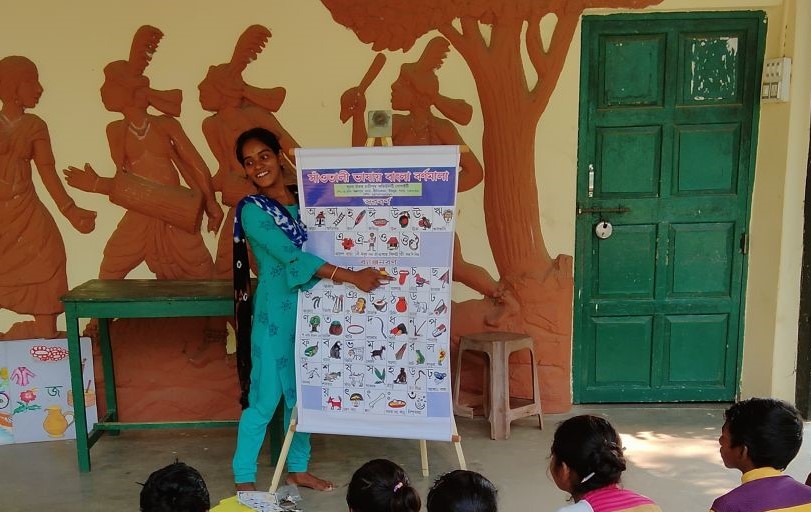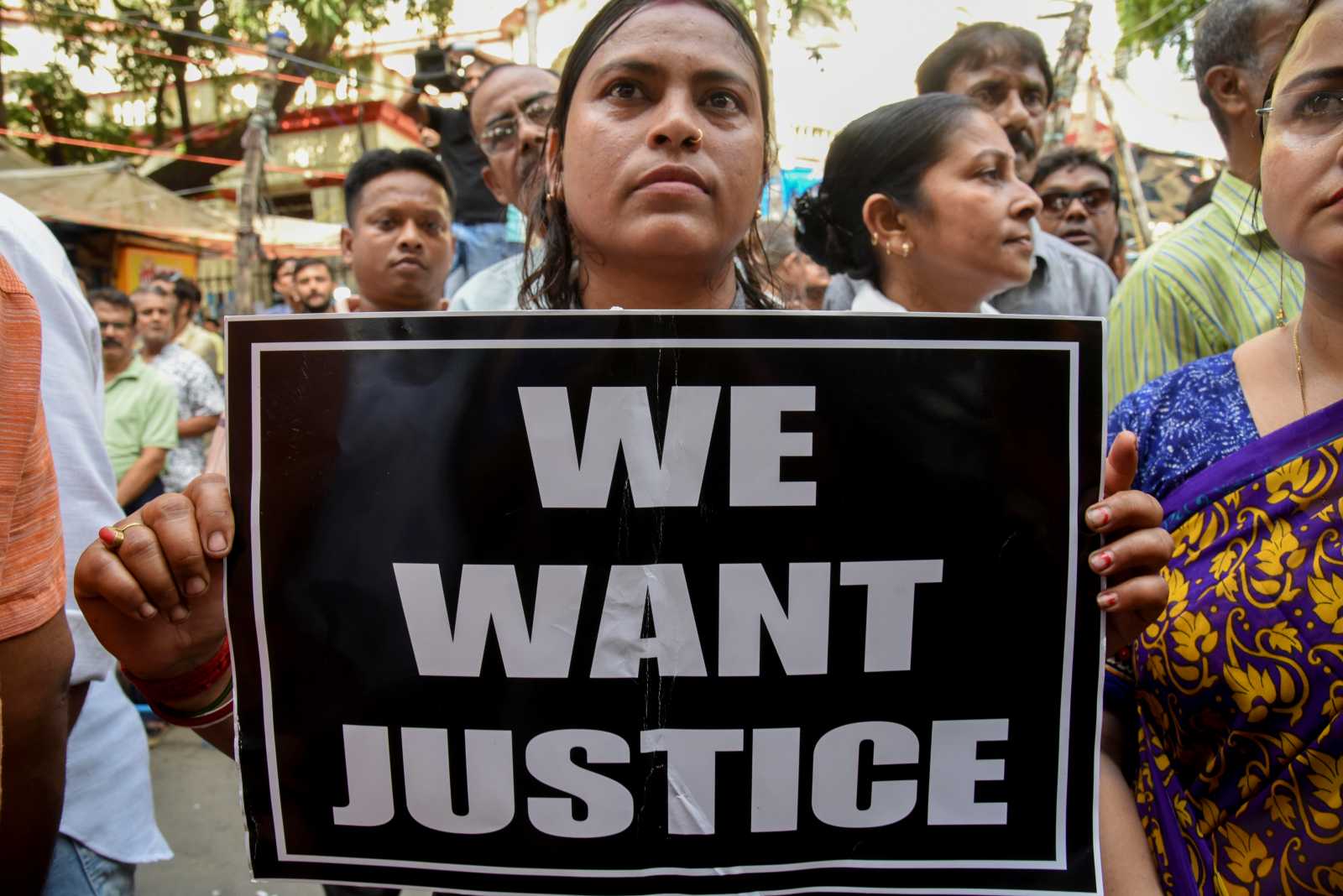West Bengal
Grassroots pre-school education in two Adivasi villages
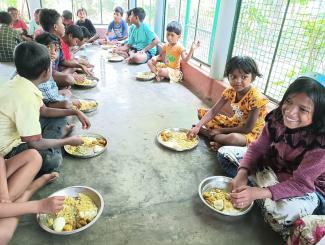
Four decades ago, the children of our village Bishnubati typically dropped out of school early on. We belong to the Santals, an Adivasi tribe. The Adivasis are the indigenous people of India. We Santals speak our own language and have historically lived on the margins of society.
In the past, our villages lacked educational facilities, so our children had to attend primary schools in Hindu or Muslim villages, most of which were more than one kilometre away. In our region, most people speak Bengali, which is a foreign tongue to our children. The teachers, however, were not Santals and not familiar with our language.
Moreover, teachers and non-Santal students tended to look down on us. The method of teaching was harsh, and corporal punishment was the unofficial norm. Santal children typically dropped out of primary school because the learning environment was very unfavourable. This dynamic cemented our community’s marginalisation.
Brighter outlook
Today, the situation for boys and girls from Bishnubati and the neighbouring Santal village Ghosaldanga is still difficult, but not as dark anymore. We have managed to establish educational facilities of our own. All children from our two villages now learn to read and write, thanks to the two pre-schools and the primary school that our grassroots organisation Ghosaldanga Adibasi Seva Sanga (GASS) is running.
Our community-based schools use Santali as the main language. We gradually teach the children Bengali, because they will need it in life. At first, our educational efforts were supported by Ramakrishna Mission, a major Hindu charity. Ever since, we relied on private donations (including from abroad), small subscription fees paid by village families and payments delivered in kind (farm produce) by particularly poor families.
It all started in the mid-1980s, when Sona Murmu from Ghosaldanga and Martin Kämpchen, a German scholar (and D+C/E+Z author) who was then preparing his PhD thesis at Visva-Bharati University in Santiniketan nearby, decided to coach school dropouts and get them re-admitted to primary school. Back then, Sona was the only boy from his village attending high school. A bit later, I and others joined him in founding GASS.
Coaching youngsters every evening, Sona realised that we Santals have a traditional way of freely interacting and socialising. We do not apply the many “dos” and “don’ts”, which are common in government-run schools. Our children thus found school life strenuous, and the language barrier made things even worse. We also saw that it would be good to tutor children before they started going to school.
With support from Ramakrishna Mission, GASS was able to set up a nursery school for children aged three to six in Ghosaldanga in 1989 and another one in Bishnubati two years later. Santal ladies were appointed to teach the children in their mother tongue. They visited every family to convince the parents of letting their sons and daughters attend.
Malnutrition was a severe problem in the village at the time. Children and mothers were the most affected. Providing nutritious food to the children and to pregnant mothers was made one of the main activities of the daycare centres. The diet included khichuri (a mixture of rice, pulses and potatoes), green vegetables (for instance beans) and fruits (like papaya). Moreover, everyone got their daily boiled egg.
Apart from feeding the children, the pre-school facilities focused on developing their cognitive and physical abilities. The teachers introduced the concepts of letters and numbers through songs, dances and music. To keep things simple for the children, we used the Bengali alphabet for our language. Games were also a major part of our activities.
Parents’ involvement
We learned that parents’ participation in the programme was essential. Therefore, GASS held weekly meetings and organised regular health check-ups, relying on the voluntary support of medical doctors, who came from both West Bengal and Germany. The health situation was indeed dire. A survey conducted in Ghosaldanga in the late 1980s showed that among the 48 families, some 40 persons were infected with tuberculosis.
In the weekly meetings, the parents and guardians shared their opinions on how to run the school more effectively. Issues of health and hygiene were regularly on the agenda. Even alcoholism and superstition were discussed, along with how to address them. It was all part of addressing the children’s situation in a holistic manner. After the meetings, soap and iron tablets were distributed to every family.
Relying on families’ input, we introduced a kitchen garden and started a tree planting programme. In the summer, when there is less work in the field, villagers collected the seeds of different trees from nearby forests. They grew saplings and planted hundreds of trees along the roads to our villages and on barren land. All family members participated in this small-scale afforestation scheme. It strengthened the sense of community and ownership of our nursery schools.
The planation efforts proved most valuable. Earlier, our women had to walk for miles to collect firewood. Now they gather dry leaves and branches from nearby trees.
To some extent, however, our pre-school programme was disrupted after the turn of the millennium. Government institutions for the same purpose were set up, but once more the teachers neither spoke our language nor understood our children’s needs. The solution was to merge our institutions with the government schools.
A primary school of our own
Our experience was that children who had attended our nursery schools coped better in primary school and it was easier to tutor them. At the same time, we became convinced that it would be good to run our own school. We were able to start one thanks to a major donation from Rolf Schoembs, a German scientist. The GASS bought barren land and established the Rolf Schoembs Vidyashram, a full-fledged primary school. Santali songs, music, tribal history, and folklore are included in the curriculum.
We ensure that the children learn what they need and become both literate and numerate. However, we do not follow a totally rigid curriculum. Our teachers have opportunities to improvise, introduce new topics or go on outings as suits the children’s interests. The method of teaching is often playful, but serious and effective, nonetheless. The school also benefits from the small museum of Santal heritage that GASS has established.
Having worked with Adivasi children in pre-primary education for more than three decades, we know how to teach our children well. We are happy to teach several children from other Santal villages in our area too. But we are fully aware of the fact that most Adivasi children in India do not get the essential opportunity of being taught systematically in their own language early in life.
Boro Baski works for the community-based organisation Ghosaldanga Adibasi Seva Sangha in West Bengal. The NGO is supported by the German NGO Freundeskreis Ghosaldanga und Bishnubati. He is the first person from his family who graduated from primary and secondary school, went to college and obtained a PhD (in social work).
borobaski@gmail.com
